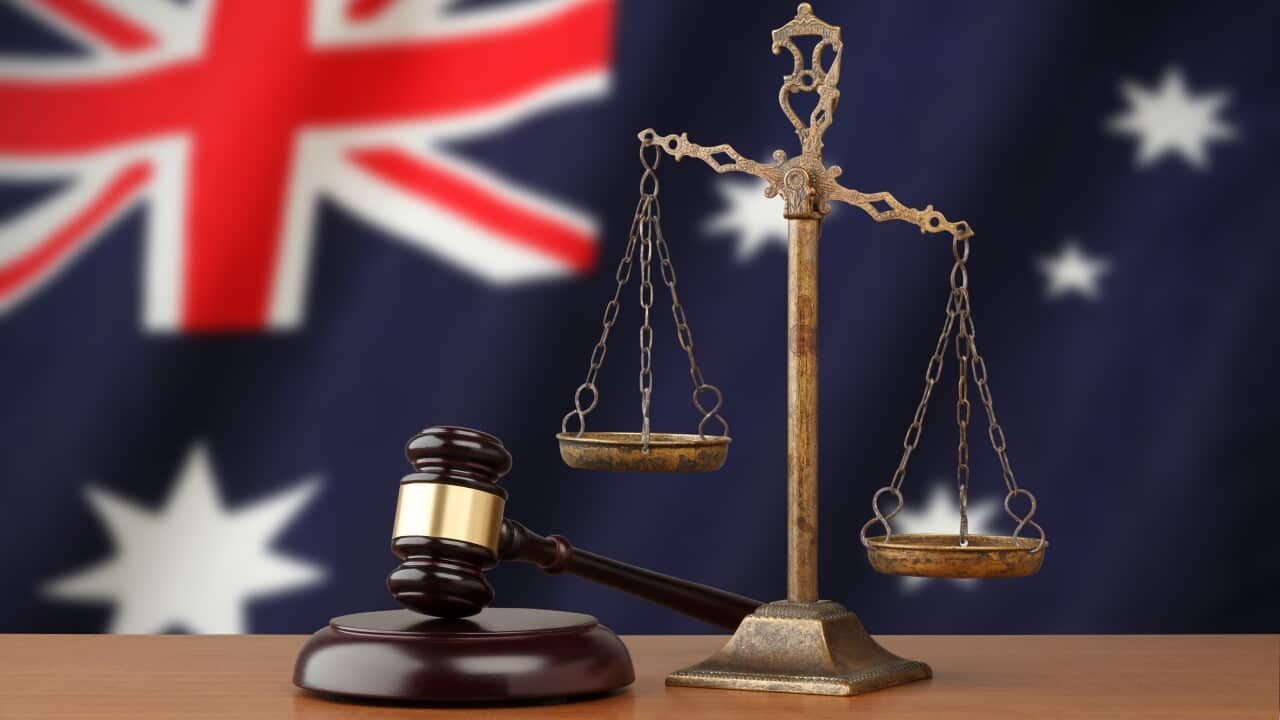In late September, NSW Chief Health Officer Kerry Chant announced that traces of COVID-19 had been detected in raw sewage across Sydney as part of new research that is hoped will provide another tool in the fight against the pandemic.
She said the sewage testing program by NSW Health and Sydney Water
Weeks after the program was announced, SBS Cantonese spoke with Sydney Water engagement officer Kee Li about how testing at the city's wastewater plants is going, and whether residents should be concerned if the virus is detected at a local waste station.
He answered some of the most asked questions below:
SBS: What is the testing all about?
Mr Li: Sydney Water is participating in a national research program to test for markers of the virus that causes COVID-19 in sewage. The results of this testing will support public health surveillance programs. Only the fragments of COVID-19 which are not infections are being tested. The samples are being tested for fragments of SARS-CoV-2, the specific coronavirus that causes COVID-19 to help health officials identify if there are persons infected with COVID-19 presently in the community, specifically in a circumstance where these communities have known cases of COVID-19.
Under what circumstances does Sydney Water test the sewage water in certain locations?
At the request of NSW Health, Sydney Water's laboratories commenced testing raw sewage in regional areas in July and all of Sydney Water's wastewater treatment plants in September. We've got 25 positive results so far from Sydney and regional centres. Sample analysis has found positive results for molecular markers for SARS-CoV-2 at Bondi, Malabar, Winmalee, North Richmond, Liverpool, West Camden, and Quakers Hill. However, most are from Malabar and Bondi catchments, which is expected given that the quarantine hotels are within this catchment. And most of these results are expected because a proportion of impacted people will pass through virus particles in pieces. And there are known recent positive cases who reside in these in water sewage catchment areas.
How many times does Sydney Water conduct tests on the sewage water if it's found there are people with COVID-19 in certain suburbs?
That's depending on the location and context. A pop detection could prompt an increase in a more targeted way for the testing or targeted public health advice for individual testing and other hygiene and preventative measures in targeted areas. Finding remnants of genetic material from COVID-19 does not mean the infectious virus is present. So the genetic material, or RNA, can persist for a significant period of time after the virus is no longer capable of causing infection.
Does Sydney Water notify NSW Health if it's detected? Will the residents be advised what to do?
We report wastewater analysis results to NSW Health within 48 hours. After that, NSW Health will use the results to inform potential areas of targeted testing programs. They'll also report the results of the weekly testing as part of the weekly surveillance report. That report is an analysis of the previous week's testing results. These test results have also been used by NSW Health to encourage residents of the surrounding suburbs to come forward and get tested.
Can you trace down to which household has the COVID-19 virus?
No, we can't at the moment. Our monitoring program currently tests samples from the wastewater treatment plant, which treats the combined wastewater for a specific catchment. We are working with NSW Health to develop smaller geographical segments from within the wastewater network, which could help identify hotspots for further community testing. For example, the Malabar wastewater treatment plant has a catchment of 1.8 million people and spans as far west as Blacktown and Campbelltown. This means a positive sample in the catchment does not give a clear geographical indication of where the positive sample is from. So we're working with NSW Health to develop smaller geographical segments to get a more granular understanding of where the positive samples are happening.
Should households be concerned if their suburbs being found to have COVID-19 in their sewage water?
No, they shouldn't. So there is no evidence that the coronavirus causing COVID-19 has been transmitted via wastewater systems, including before and after treatments. Wastewater continues to be managed and treated properly by Sydney Water to protect public health and the environment. We found the coronavirus to be very susceptible to routinely-used disinfection methods. The processes used by water utilities to disinfect wastewater have been developed based on the most resistant pathogens, including viruses that are more resistant than the COVID-19 virus. So given coronaviruses are susceptible to disinfection, the current disinfection methods in wastewater treatment are sufficient to deactivate the COVID-19 virus and has been proven to be very effective against similar viruses tested. These disinfection methods include oxidation, chlorine, chlorine dioxide, as well as inactivation using ultraviolet irradiation so those are the methods already very useful and effective now to treat our wastewater.
How often does Sydney Water do the test to see if there's a COVID-19 in sewage water?
Currently, we are analysing about 80 samples a week, but we will increase our resources to manage the processing of more samples, up to 150 per week by Christmas. Sydney Water is working with NSW Health to undertake sampling and testing in smaller geographical segments from within the wastewater network which could help identify hotspots for further community testing. We asked you determining the locations and frequency of sampling.
When Sydney Water detects COVID-19 in sewage water, how would a worker treat or handle the water?
COVID-19 breaks down readily in wastewater and is very susceptible to current treatment processes, including chlorine and other oxidant disinfection processes. So our team members in Sydney Water who work closely with wastewater have appropriate protective equipment and processes to ensure their safety as well. This is no different from how we treat wastewater currently. So all of our workers, including our wastewater workers are operating under an accredited safe plan. What I want to point out is that our current wastewater treatment system is very capable to treat COVID-19 already. So we also found that COVID-19 is not very persistent at all in the current base water treatment system. I just want to say that people don't have to be too much worried about it.




